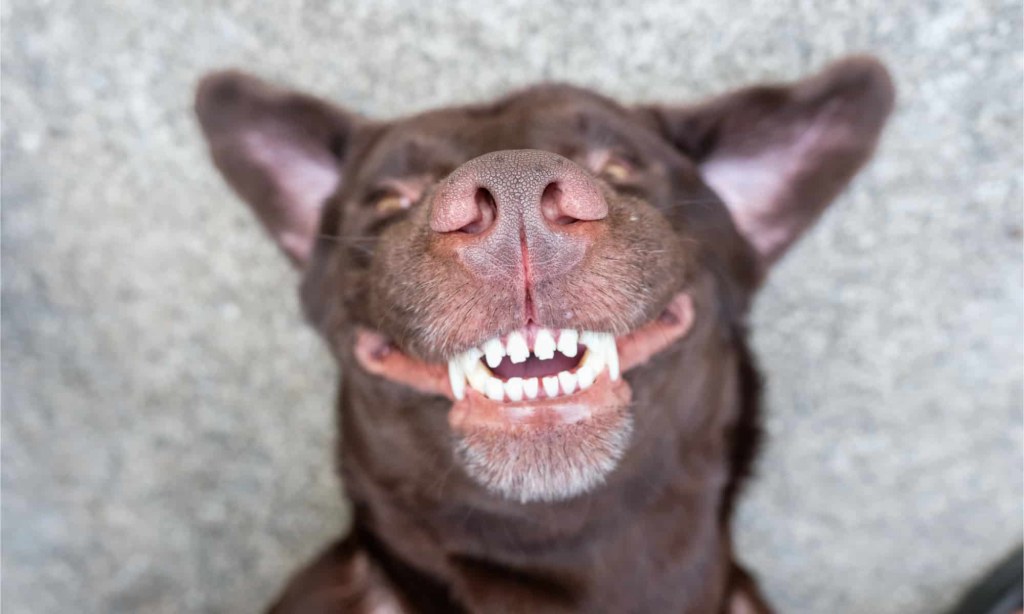Do All Pets Have Teeth? Discover The Dental Secrets Of Your Furry Friends And Take Action Now!
Do All Pets Have Teeth?
Introduction
Dear Pets Lover,
1 Picture Gallery: Do All Pets Have Teeth? Discover The Dental Secrets Of Your Furry Friends And Take Action Now!

Welcome to our informative article that aims to answer the question, Do all pets have teeth? As pet owners, it is important for us to understand the dental care needs of our furry companions. In this article, we will explore the dental anatomy of various pets, discuss the importance of dental health, and provide tips on how to care for your pet’s teeth. So, let’s dive in and learn more about our pets’ dental health!
Table: Pets Dental Anatomy

Image Source: a-z-animals.com
Pet
Dental Anatomy
Dog
Dogs have 42 teeth, including incisors, canines, premolars, and molars.
Cat
Cats have 30 teeth, including incisors, canines, premolars, and molars.
Rabbit
Rabbits have 28 teeth, including incisors and molars. They have continuous growth of their teeth.
Hamster
Hamsters have 16 teeth, including incisors, premolars, and molars.
Gerbil
Gerbils have 20 teeth, including incisors, premolars, and molars.
What is the Importance of Pet Dental Health?
🔍 Dental health is crucial for pets, just like humans. It affects their overall well-being and quality of life. Poor dental hygiene can lead to various health issues, such as gum disease, tooth decay, and even organ damage. Regular dental care can prevent these problems and ensure your pet’s comfort and longevity.
Who Needs Dental Care?
🔍 All pets, regardless of their species, require dental care. While the dental anatomy may vary among different animals, the need for oral hygiene remains the same. Dogs, cats, rabbits, hamsters, gerbils, and many other pets can benefit from regular teeth cleaning and dental check-ups.
When Should You Start Dental Care?
🔍 Dental care should begin as early as possible in your pet’s life. For puppies and kittens, it is essential to establish good oral hygiene habits from a young age. However, it is never too late to start caring for your pet’s teeth. Even adult or senior pets can benefit from dental care and maintain good oral health.
Where Can You Seek Dental Care?
🔍 To ensure proper dental care for your pets, it is recommended to consult a veterinarian. Vets have the knowledge and tools to perform dental cleanings, treat dental diseases, and provide guidance on at-home dental care. Regular veterinary check-ups will help you monitor your pet’s dental health and address any concerns promptly.
Why is Dental Care Challenging for Some Pets?
🔍 Some pets may resist dental care due to fear or discomfort. It can be challenging to brush their teeth or perform oral examinations. In such cases, there are alternative dental care options, such as veterinary dental chews, dental diets, and water additives. Your veterinarian can suggest the most suitable options for your pet’s needs.
How to Care for Your Pet’s Teeth?
🔍 Proper dental care for your pets involves regular brushing, dental check-ups, and a balanced diet. Brushing your pet’s teeth with a pet-specific toothbrush and toothpaste helps remove plaque and prevent tartar buildup. Additionally, providing dental treats or toys and feeding a diet that promotes dental health can contribute to maintaining strong and healthy teeth.
Advantages and Disadvantages of Pet Dental Care
Advantages:
1. Improved overall health and longevity.
2. Prevention of dental diseases.
3. Fresher breath and reduced bad odors.
4. Enhanced quality of life for your pet.
5. Cost-effective in the long run as it prevents expensive dental treatments.
Disadvantages:
1. Initial cost of dental care products and professional cleanings.
2. Potential resistance or difficulty in performing dental care.
3. Need for regular maintenance and commitment from the pet owner.
4. Possible risks associated with anesthesia during dental procedures.
5. Limited availability of affordable dental care in some areas.
Frequently Asked Questions (FAQ)
1. Q: Can pets get cavities like humans do?
A: No, pets are less prone to cavities, but they can develop other dental issues like gum disease or tooth decay.
2. Q: How often should I brush my pet’s teeth?
A: Ideally, you should brush your pet’s teeth at least 2-3 times a week, but daily brushing is recommended for optimal dental health.
3. Q: Can I use human toothpaste for my pet?
A: No, human toothpaste contains ingredients that can be harmful to pets. Always use toothpaste specifically formulated for pets.
4. Q: Can dental problems in pets affect their overall health?
A: Yes, dental issues can lead to various health problems in pets, including heart, liver, and kidney diseases.
5. Q: Are there any alternatives to tooth brushing for pet dental care?
A: Yes, there are alternative dental care options available, such as dental chews, water additives, and dental diets. However, tooth brushing remains the most effective method.
Conclusion
In conclusion, all pets have teeth, and their dental health is of utmost importance. By understanding their dental anatomy and practicing proper dental care, we can ensure our pets live a happy and healthy life. Regular dental check-ups, brushing, and a balanced diet are key steps in maintaining strong and clean teeth for our furry companions. Let’s prioritize our pets’ dental health and give them the smile they deserve!
Disclaimer:
The information provided in this article is for educational purposes only and should not replace professional veterinary advice. Consult your veterinarian for personalized guidance on your pet’s dental care.
This post topic: Pets



